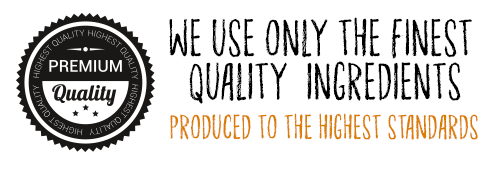With Easter upon us, and Spring bursting all around us, it is difficult not to think about new life, we have a pair of ducks in our garden, wandering around and preparing to lay eggs, the Drake follows the female about like an over protective bodyguard, so we feel we may be privy to some fluffy ducklings in the near future. Then we will have to look out for the Magpies trying to make a meal of them. So while fecundity is on our minds, I found a piece about nourishment during pregnancy which you might find interesting....if you are pregnant that is, or an expectant father!
Health
Sunday April 24, 2011
Eating in pregnancy
By Assoc Prof Dr POH BEE KOON
With a new life growing inside you, what you eat matters a lot.
WHILE you are overjoyed with your pregnancy, you are probably also eager to ensure a healthy pregnancy. To achieve this goal, one of the vital aspects you need to pay attention to is nutrition.
Eating for two
While nurturing a new life inside you, your body undergoes significant physiological changes to adapt to your new role. To cope with the changes during pregnancy, your daily requirements for energy, protein, and certain vitamins and minerals increase dramatically.
You need extra energy and nutrients to help you gain healthy pregnancy weight, to support the growth and development of your unborn child, and to nourish the placenta and tissues in the uterus.
Eating well at this stage will also help you better prepare your body for breastfeeding when baby is born.
Therefore, you need to eat a sensible and well-balanced diet to maintain your own health, as well as your unborn baby’s. This is what “eating for two” is all about, and not what most people believe as eating double of everything!
In general, pregnant mums can fulfil their daily nutritional needs by consuming adequate amounts of nutrient-dense foods. When it comes to eating right and well throughout your pregnancy, the key words are: balance, moderation, and variety.
·Balance – Eat a balanced diet that combines foods from the five major foods groups in the Food Pyramid to provide a proper balance of nutrients. For busy working mums-to-be, who may not have time to eat nutritious meals every time, key nutrients such as iron, folic acid, zinc, and calcium can also be obtained from fortified milk or supplements.
·Moderation – Eat the right amounts of foods to maintain a healthy weight gain throughout your pregnancy, and to optimise your body’s metabolic processes.
·Variety – Eat different types of foods from each of the food groups every day to optimise your intake of various nutrients.
Mums-to-be should not “go on a diet” just because they are concerned about gaining too much weight during pregnancy, or just because they are worried about the possibility of not being able to lose weight after delivery.
Remember, gaining weight is a natural part of the pregnancy process. If you deprive yourself of essential nutrients, you run the risk of delivering an undernourished baby.
However, it is just as important to maintain a healthy well-balanced diet, as too much fat intake may lead to excessive maternal postpartum weight retention. Therefore, pregnant mums should wisely select foods that are rich in essential nutrients, yet low in fat. This will help in controlling calorie intake while providing crucial nutrients at the same time. Obesity during pregnancy has been found to be an independent risk factor for neural tube defects, foetal mortality, and pre-term delivery.
Adequate intake of certain vitamins and minerals are particularly crucial during pregnancy iron and folic acid are two of the most important.
Iron needs
Your iron needs during pregnancy can increase up to almost twice of that before pregnancy. This is because your blood volume increases, and you need extra iron to make haemoglobin to produce additional blood. Your growing foetus also needs iron to make blood.
If you started off your pregnancy without sufficient stores of iron, you may suffer from iron-deficiency anaemia.
The first symptoms you notice are paleness (eg in the fingernails, lips), tiredness and fatigue, and light-headedness. If severe, you will experience dizziness, rapid heartbeat, headache, and shortness of breath.
But anaemia is more than just symptoms. It can lead to potentially fatal pregnancy complications. Anaemia has been associated with higher risks of miscarriage, preterm delivery, stillbirth, and low birth weight.
The most common cause of anaemia during pregnancy is a diet low in iron. The iron requirement for pregnant women is so great that it cannot be met with just diet alone. That is why iron supplementation is usually recommended for pregnant women.
For anaemic women, higher doses may be required to help increase blood haemoglobin levels.
Pregnant mums can do a few things to increase their dietary iron intake or encourage iron absorption from their diet:
·Eat more iron-rich foods – Iron can be obtained from foods of animal and plant sources. However, iron from plant sources (eg cereals, legumes, vegetables and fruits) is less well absorbed by the body (ie lower iron bioavailability) compared to iron from animal sources (eg meat, poultry and seafood).
·Increase your vitamin C intake – Vitamin C aids absorption of iron from plant sources. This is important for pregnant mums who are vegetarians, as their daily diet is made up mainly of plant-based foods that have lower iron bioavailability.
So consume vitamin C-rich foods or drinks when you are eating cereals, beans, and vegetables for better iron absorption.
·Watch how you eat – Certain foods hinder iron absorption. Coffee and tea, for instance, contain a group of plant chemicals known as tannins that can affect iron absorption from plant-based foods. Calcium in milk affects iron absorption from animal sources.
If you need to drink these beverages, drink two hours after main meals to avoid interfering with iron absorption.
Folic acid, or folate, is a vital nutrient during pregnancy. It is essential for the development of your unborn baby’s nervous system. Folic acid is also needed in the formation of red blood cells and in cell multiplication.
Folic acid deficiency during pregnancy is another cause of anaemia. More importantly, if you don’t receive adequate folic acid during pregnancy, especially in the first three months, your baby will be at risk for neural tube defects (ie defects in the formation of the foetus’ spinal cord).
Your daily folic acid requirement during pregnancy is 600 micrograms, compared to 400 micrograms when you are not pregnant. In fact, women planning to get pregnant should ensure they get sufficient folic acid from their diet in the months before they become pregnant. Deficiency can arise if your dietary intake of folic acid is poor.
While folic acid is plentiful in legumes, green leafy vegetables and fortified cereals, it is not stored in the body in large amounts. Also, overcooking destroys folic acid in vegetables and fruits. Therefore, a continual supply of folic acid through diet is necessary to maintain your body’s reserves of the vitamin.
Pregnant mums are encouraged to eat a variety of folic acid-rich foods, such as breakfast cereals, spinach, asparagus, broccoli, and different types of beans, peas and lentils, as well as egg yolk and liver. Your doctor may likely prescribe folic acid supplements. You should take it daily or according to doctor’s instructions.
Pregnant women should also be more aware of other dietary components that can help in providing health benefits for both mother and child. Fructooligosaccharides or FOS, is a type of fibre that can benefit the overall health of our digestive systems. It is a “prebiotic” that promotes the growth of beneficial microflora in the gut, which in turn helps suppress harmful organisms in the intestinal tract.
An adequate fibre intake helps reduce constipation during pregnancy.
- > This article is courtesy of Positive Parenting Nutrition Programme by Malaysian Paediatric Association in collaboration with Nutrition Society of Malaysia.









